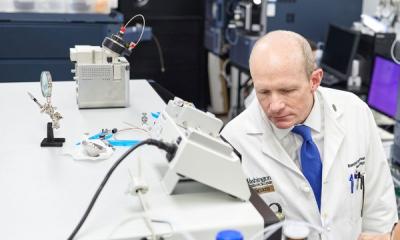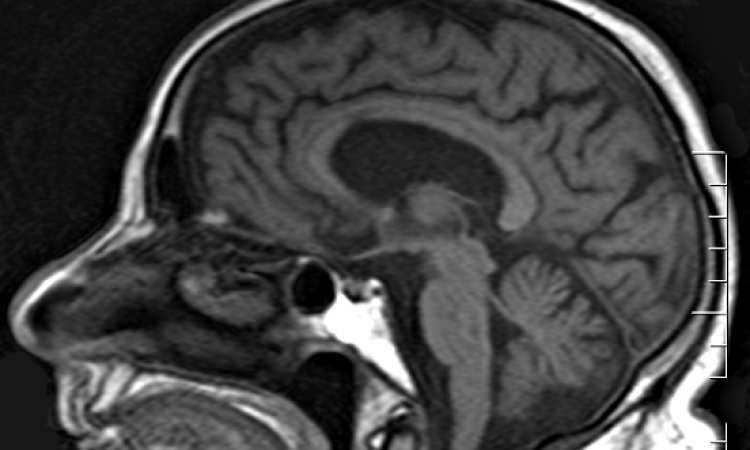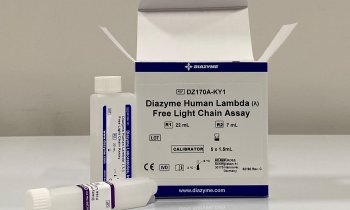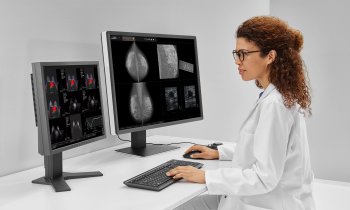Experts Advise
Routinely screen those older than 70 for brain health
A panel of world experts in aging convened at Saint Louis University recommended that everyone 70 and older should have their memory and reasoning ability evaluated annually by a doctor or health care provider.

This is the first time routine brain health screenings have been recommended for patients, starting at age 70. Patients found to have cognitive problems also should be screened for physical frailty, and vice versa, suggested the panel.
Published in the September issue of JAMDA, the recommendation for brain health comes in light of numerous studies, including those in The Lancet and New England Journal of Medicine, that suggest 30 percent of those older than 70 have memory problems. Approximately 16 percent of this group has mild cognitive impairment, while 14 percent has dementia, which includes Alzheimer’s disease.
“This is an important step in toward enhancing brain health for aging populations throughout the world,” said John Morley, M.D., director of geriatric medicine at Saint Louis University and lead author of the consensus paper. “The ability to learn, solve problems and remember is a key to successful health and aging.”
Some causes of early cognitive disorder, can be reversed and treated when caught early. These include depression, hypothyroidism, sleep apnea, problems with sight and hearing, and treatments of multiple health conditions with medications. “You can actually fix some of these issues, which is one reason why it’s critical to identify a problem and try to find a root cause,” said Morley, who also is a SLUCare Physician Group geriatrician.
The progression of cognitive impairment sometimes can be slowed through a series of lifestyle changes, the panel said. They endorsed changes suggested in FINGER, a Finnish geriatric study published in The Lancet, which found those who ate a healthy diet, exercised, trained their memories and managed cardio-vascular risks were less likely to develop cognitive decline and memory problems than older adults who did not. “There are things you can do to slow down the progression of not thinking well,” Morley said.
The panel endorsed a Mediterranean-type diet -- packed with fruits and vegetables, fish twice a week, olive oil, nuts, legumes and whole grains -- for patients who have early cognitive problems. Further, because population-based studies show brain health as well as physical well-being is connected to exercise, they encouraged physical exercise that can include resistance training and Tai Chi. The panelists also noted that population-based studies show those who dance, engage in intellectual activity and play a musical instrument have less mental decline than those who not pursue these hobbies. And video games can improve reasoning, memory, reaction time and attention in older adults.
Physicians need to know if their patients are not remembering or thinking clearly because they might not be able to follow doctors’ orders for medical problems, such as diabetes or heart disease.
“If you have diabetes and are not thinking as well as the general population, you might forget how to do the required daily finger prick to determine your blood sugar levels, which would compromise your health,” Morley said. “However, if your doctor knows you have difficulty remembering, someone in his or her office can make sure you understand exactly how to check your glucose levels and give you written instructions as a ready reference. It’s a simple common sense thing that can make a huge difference in your health.”
Finally, for those patients whose reasoning and memory problems likely will worsen, knowing in advance can help them plan for the future. They can begin considering tough questions, such as when to stop driving or remove dangerous tools from their homes, and set up advanced directives for health, financial and legal matters. They can identify sources of support like family members or friends and organizations such as the Alzheimer’s Association.
Information is power, Morley said. “Our recommendations are going to shape clinical practice in a big way,” Morley said. “Physicians are hungry for this information to help their patients, and as the message gets out, patients will request screenings.”
Source: Saint Louis University Medical Center
24.09.2015







